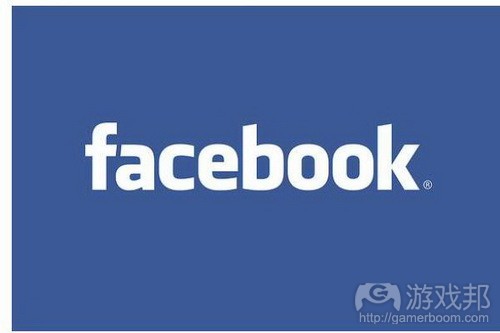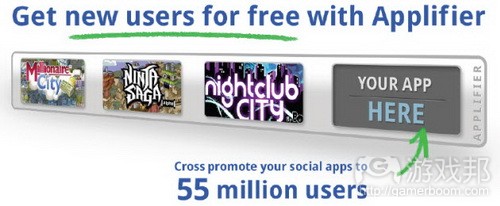社交游戏开发商摆脱Facebook的5大建议
游戏邦注:本文作者为Marc van der Chijs,文章主要讲述社交游戏开发商如何摆脱自身对Facebook平台的依赖性。
休闲和社交游戏的制作成本不高,其费用主要在于营销。这对Zynga之类的大公司而言并非什么难题,但却困扰很多小型开发公司。如果你是开发新手,在Facebook平台毫无用户基础,那么获得关注的可能性就很小。虽然很多开发商认为自己的游戏潜力无限,但投资者面对名不经转的工作室总是有所迟疑。游戏开发商对于Facebook平台日益增加的依赖性是游戏行业存在的一大问题,但也并非没有解决方案。
游戏要想获得丰厚营收,有趣内容和强大用户基础是支撑要素。在Facebook游戏开发商黄金时期(游戏邦注:即2007年初至2010年),获得用户并非难事。Facebook通过提供免费营销工具(如在消息动态及其他功能中发布游戏资讯促使游戏获得病毒式传播)帮助Zynga、Crowdstar和Playfish之类的公司迅速崛起。目前在线游戏领域的很多大公司之所以能够成功部分原因要归功于Facebook,而Facebook的成功也离不开这些公司的支持。这些游戏的病毒式传播功能也帮助Facebook迅速发展壮大。
然而,当用户开始抱怨收件箱里源源不断的游戏资讯和恼人邀请时,Facebook便开始采取相应措施限制这些资讯的更新频率和覆盖范围,最终完全取消该功能。如今新工作室很难在这个平台推广新作品。所以开发商要如何减少自身对Facebook病毒式传播功能的依赖性呢?
1. Facebook营销
应对Facebook限制最合理的方式就是转向付费营销。Facebook的定向营销相对简单,开发商可以将广告瞄准目标用户群。2010年初,广告商支付的游戏点击成本是0.1美元/点击,这表示如果开发商能够把用户转变成付费玩家,那么其仍旧能够创收。但由于很多开发商开始使用付费营销,点击费用便开始上升(游戏邦注:目前是1美元/点击),这对游戏而言是个昂贵的创收成本,因为点击率很低,并非快速获得用户的好方式。开发商需要研究更有效的推广策略。
2. 交叉推广网络
随着营销成本开始提高,Facebook付费营销对小型开发公司而言显然不再是个有利可图的策略,于是交叉推广网络开始出现。交叉推广是大型公司掳获新用户的策略。例如,Zynga能够面向其1亿多用户基础进行新游戏宣传。由于我之前玩《Farmville》,所以当《Cityville》推出时,我也成为受邀玩家。和Zynga一样,开发商可以充分利用现有用户基础,尝试让玩家体验新推出的游戏。遗憾的是,小型开发商无法凭自身力量实施该策略。但如果他们携手合作,共享资源,可以说他们就有望获得规模同等的用户群。这就是交叉推广网络的理念。Applifier就是个好平台。开发商只要允许其他公司在自身游戏宣传新作,那些他就同样能够在其他游戏中宣传游戏或应用(游戏邦注:据悉,Applifier每月用户超过5500万,所以该平台给小型游戏公司带来无限发展机会)。Tapjoy也采用相同理念:开发商只要将Tapjoy视为唯一付费渠道,就能够享受该公司覆盖1亿社交玩家的推广网络。Applifier和Tapjoy公司都给小型开发商提供获得足够曝光度的机会,协助他们创造颇受追捧的作品。
3. 注册自己的域名
若Facebook不允许开发商通过平台进行病毒式营销,为何不跳出Facebook,让用户在自己的网站中体验呢?这是Zynga采用的策略,玩家可以在Farmville.com体验《Farmville》。这带来的优势是Zynga如今自己握有用户资料(游戏邦注:这些数据远比Facebook平持有台的复杂得多)。另外一大优势就是若Facebook改变规则,开发商还有选择余地。这并非仅是理论优势:今年7月份开始,所有Facebook游戏都要统一采用Facebook credits,这表示开发商必须同Facebook分成利润,但开发商获得用户的成本不菲,且作品命运难料。虽然Zynga并没有对《Cityville》采用相同策略,但如果玩家输入Cityville.com,系统会自动跳转至Facebook主页。长期来看,这是值得某些开发商采用的策略。若开发商能够在自己的域名中建立起用户基础,那么定会获得相当可观的营收。
4. 借助应用商店
若游戏有推出手机或HT ML5版本,开发商可以考虑把游戏投放至应用商店当中。其中最著名的当属苹果的App Store,但Android和Chrome应用也在快速腾飞。和Facebook平台一样,该领域的用户群体也十分庞大,但问题是竞争也同样激烈。该领域的黄金时期似乎也渐行渐远,应用商店的营销成本也颇为惊人。只有顶级游戏能够获得大规模下载量,或者丰厚营收。多数应用都被众多玩家忽略。针对此问题,我们有相应解决措施,例如借助StumbleUpon和FreeAppADay之类的应用曝光工具。但开发商在这类功能中的竞争也日益激烈,所有开发商都希望自身作品能够获得最大程度曝光。
5. 采用专门社交游戏网络
过去2年来,若干专门社交网络纷纷问世,有些俨然已成为Facebook的完美替代平台。例子之一就是hi5,该平台是由社交网络演变成社交游戏网络。Hi5主要瞄准美国市场(游戏邦注:据Alexa资料显示,该平台并未呈现明显增长势头,其流量也似乎每况愈下)。Facebook的另一强劲替代者是Spil Games去年推出的社交网络平台。该平台的月用户达1.3亿,这对许多开发商而言是替代Facebook的最佳选择,这不仅因为平台拥有庞大用户规模,坚持全球发展战略,还因为该平台竞争性小。如今连某些大型社交游戏开发商都意识到自己需要寻找Facebook以外的替代平台,开始同Spil Games展开合作。
总的来说,除Facebook推广策略和病毒式传播渠道外,开发商还有很多宣传游戏的选择,这些方案并非相互排斥。不同开发商也许适用不同策略,但需要注意的是它们都是能够取代Facebook的选择方案。很多开发商依旧认为Facebook才是其制胜法宝,但很多开发商已经目睹应用商店的傲人成绩及Spil Games的卓越成就(游戏邦注:前者的例子如《愤怒的小鸟》,后者如中国社交游戏公司Elex推出的《开心农场》)。所以各个开发商们,请大胆跳出Facebook,寻求其以外的游戏推广平台。(本文为游戏邦/gamerboom.com编译,如需转载请联系:游戏邦)
5 Ways For Game Developers To Become Less Dependent On Facebook
By Marc van der Chijs
Development of casual and social games is generally not very expensive—the cost lies mostly in marketing them to players. This is not a problem for big companies like Zynga, but it does create a hurdle for smaller studios. If you’re a new game developer without an audience on Facebook, it’s virtually impossible to get noticed. Even though many developers think that their games have superstar potential, investors are increasingly hesitant to invest in unknown studios. Game developers’ growing reliance on Facebook is a major problem in the industry, but there are ways around it.
In order for a game to make a lot of money, you need great content and a large audience. During Facebook’s golden years for game developers (early 2007 to 2010), getting an audience was not so difficult. Facebook helped companies like Zynga, Crowdstar, and Playfish grow quickly by giving them free marketing tools, like pushing updates to people’s news feeds and other features that gave the games a powerful viral punch. Many of today’s major players in the online gaming industry can credit their success, in part, to Facebook—and vice versa. The viral features of these games helped Facebook to grow faster as well.
However, once people started complaining about the constant flow of game updates and unwanted invites in their inboxes, Facebook made moves to restrict the frequency and scope of these updates, eventually almost stopping them altogether. From that moment on, new studios have had a very difficult time promoting their games on the site. So, what can you do as a developer to avoid this growing dependence on the viral opportunities presented by Facebook?
1. Marketing on Facebook
The most logical way to circumvent Facebook’s restrictions is to switch to paid marketing for your games. Targeted marketing is relatively easy on Facebook and it enables you to get your ad in front of the right people. In early 2010, one click on a game cost advertisers around USD 0.10, which meant that game developers could still make money if they managed to convert players to paying users. But because many game developers began using paid marketing, the price-per-click went up and is currently about USD 1—too expensive for many games to make money, because of the very low click-through rate, and still not a good strategy to gain lots of players quickly. Better strategies are needed.
2. Cross-Promotional Networks
When the marketing costs started going up and it became increasingly clear that paid marketing on Facebook would not be a profitable strategy for many smaller developers, cross-promotional networks started to appear. Cross promotion is a strategy that the big names use to gain new players. Zynga, for example, has over 100 million users to market its new games to. Because I used to play Farmville a while ago, I was also invited to play Cityville when it was released. In the same way as Zynga, you can access your player database and try to get players to try other games that you develop. Unfortunately, small developers can’t do this on their own. But if they team up with each other and pool their resources, so to speak, they can access a potentially similar-sized audience. That’s the idea behind cross-promotional networks. Applifier is a great example of this. You can promote your app or game on other games as long as you allow them to do the same with yours. The company claims to have more than 55 million monthly users, so there’s a large potential here for small game developers. Tapjoy also employs a similar concept: it allows you to use their distribution network of 100 million social-game players in return for exclusively using the Tapjoy monetization platform. Both Applifier and Tapjoy give small developers the opportunity to get enough exposure to create a potential hit.
3. Go offline with your own domain
If Facebook won’t allow you to market your games virally on their network, why not go outside of Facebook and let your audience play on your own domain? This is a strategy that Zynga has tried—you can also play Farmville at Farmville.com. The advantage is that Zynga now owns the user data, something that is more difficult on Facebook. Another big advantage is that it provides an alternative should Facebook changes its rules. This is not just a theoretical advantage: from July onwards, games on Facebook are required to use Facebook credits, meaning that developers are suddenly forced to pay a revenue share to Facebook. But developing your own audience does not come cheap and success is not guaranteed. Even Zynga did not extend this strategy for Cityville: if you type in Cityville.com you’re redirected to Facebook’s homepage. In the long run, it may make sense for some developers. If you can manage to build up an audience on your own domain, it can be very lucrative.
4. Use app stores as an alternative to Facebook
If you have a mobile or HT ML5 version of your game, you can submit that game to one of the many app stores on the web. The most famous one is, of course, Apple’s app store, but Android and Chrome applications are also rapidly picking up speed. Audiences there are huge, just like on Facebook, but the problem is that the competition is also fierce. Here too, it seems that the golden days may have already passed us by—marketing your games on app stores has become quite expensive. Only the top games get big numbers of downloads and therefore earn serious money. Most of the apps never get discovered by the majority of players. There are ways around this, like getting featured on app discovery tools such as StumbleUpon or FreeAppADay. But again, the competition for these coveted features is also heating up—everybody wants their moment in the sun.
5. Use dedicated social game networks
Over the past two years, several dedicated social-gaming networks have been launched, some of which could become real alternatives to Facebook. One example is hi5, the former social network turned social-gaming platform. Hi5 mainly focuses on the US market, not offering much growth potential, and its traffic seems to be decreasing quickly, according to Alexa. A much bigger alternative are the targeted social-gaming networks that Spil Games has rolled out over the past year. With 130 million unique visitors per month, they currently present one of the most attractive alternatives to Facebook for many developers—not only because of the size of their audience and the global reach of the platforms, but also because there is a lot less competition. Even some of the big social-game developers now realize that they need an alternative to Facebook and have started working with Spil Games.
In conclusion, there are several alternatives to rolling out your games on Facebook and being dependent on the viral features the social network offers—and they are not necessarily mutually exclusive. Some may work better for certain developers than others, but the main message is that there ARE alternatives to Facebook. Too many developers still seem to think that Facebook is the Holy Grail. Some developers have seen amazing results in the app stores (Angry Birds) or on Spil Games’ networks (Happy Harvest by Chinese company Elex). So, if you are a developer, be brave and look beyond the borders of Facebook!(Source:businessinsider)










































 闽公网安备35020302001549号
闽公网安备35020302001549号